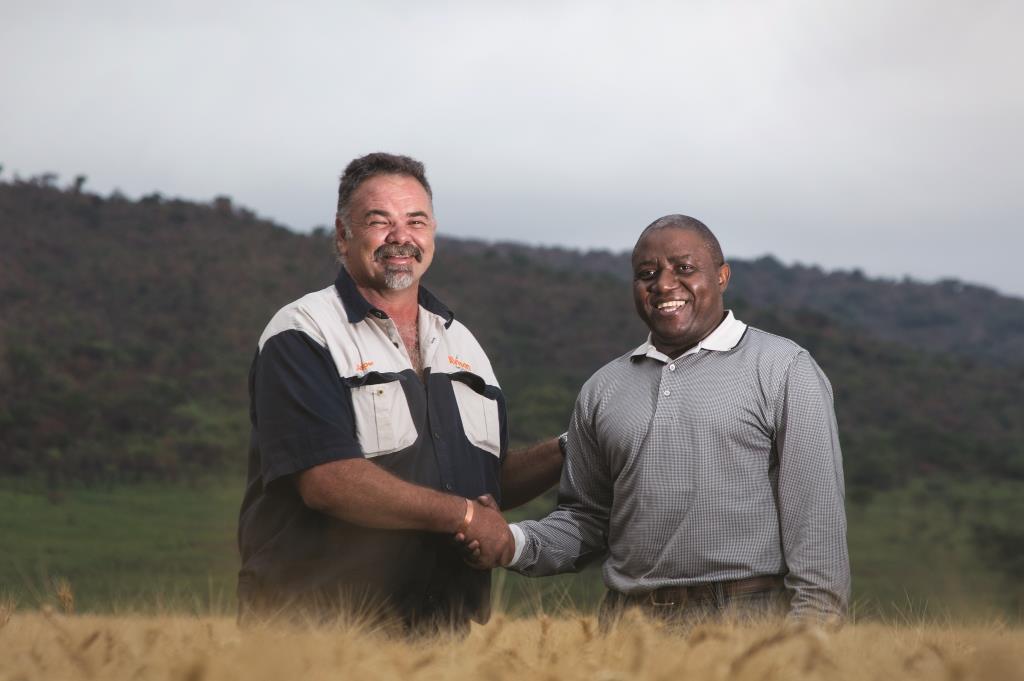It’s a multi-billion-dollar business that is struggling, with millions of lives on the line.
The business of food is a major industry in Africa, but the lack of investment is threatening it.
Grain SA expects that South Africa will, this year, need to import about 770,000 tons of maize, its staple.
Speaking at the 6th African Grain Trade Summit in Kigali, Rwanda, Michael Hailu, the Director of the Technical Centre for Agricultural and Rural Cooperation (CTA), said Africa spends at least $25 billion on food imports, according to reports. Nigeria alone ate 5 million tons of rice in 2013, while importing 2 million tons of this. It spends over 350 billion naira ($1.78 billion) a year importing rice.
“To decrease imports, we need to solve the problems we have in the agricultural sector so that the continent can be a bigger agricultural investment option,” says Dennis Matangira, Senior Managing Partner at Databank Agrifund Manager, which invests in African agriculture.
Loading...
It is risky, according to Matangira, because of poor rainfall, a lack of technology, support and seeds, expensive inputs and uncertainty around land tenure in many countries.
“African agriculture productivity is way behind the rest of the world. Investments in technology and modern farming methods are what made the difference in high productive regions. If Africa has to be food secure, adequate investments will need to be made. It’s not so much about the size of the land, but the productivity of the land under use,” he says.
African entrepreneurs want to solve this problem and make money from it.
Fertilizer companies, like Avison, are taking the bull by the horns. It has created a semi-organic fertilizer in which Databank has invested. According to Matangira, this fertilizer enhances soil fertility.
“Increasing yields from currently utilized land is the only solution for necessary, sustainable, production increases,” he says.
Databank invested in Avison in 2014 and has helped build three fertilizer plants.
“When you apply semi-organic fertiliser, you introduce macro- and micro-nutrient elements to the soil. That gives life back to the soil, making it productive. After years of using 100 percent chemical fertilisers, micro elements are depleted, the soil gets damaged by the fertiliser and yields are reduced. This fertiliser counters that,” he says.
Avison mixes organic material and chemical fertilizer which returns higher yields that Databank claims tripled revenue in 2015.
“If you use purely organic fertilizer, like bird manure or chicken manure, without blending with chemical fertilizer, the yields are not as great. There is less work with this because you only apply it once before planting and there is no need for boosters,” says Matangira.
“We use satellite technology to map the soil and use 13 years of historical data to determine the production capacity of the soil. In conjunction with this we do comprehensive soil classification and soil potential maps. Armed with this information we can pinpoint the specific needs within each hectare. Now we can fairly accurately estimate how much the farm can produce each year. If you know the soil can never produce more than 5 tonnes a hector you won’t fertilise for more and can save time and money.”
Below the empty road to Jasper van der Linden’s farm in Mookgophong, a two hour drive from Johannesburg, lie healthy crops as far as the eye can see. There is a vast field of wheat waving in the wind.
Van der Linden says his farm is an agricultural paradise. He claims his yields have increased by around 40% since he began using Avison’s fertilizer.
“The protein levels in the wheat have also increased. The top grade is 13 percent but now I have it at 15 percent. I grew up on a farm and I have been farming my whole life. I farmed two years in the US and in Sudan and many parts of Africa and I have never seen a combination like this that has such great outcomes,” he says.
“Too many yields are lost in the continent and we need such inventions to improve it. This puts a smile on my face because it means I will make more money than most farmers.”
The World Bank estimates that food production and processing in Africa could generate $1 trillion a year by 2030. All it needs is investment, innovation, rain and canny, hardworking farmers.
Loading...





















